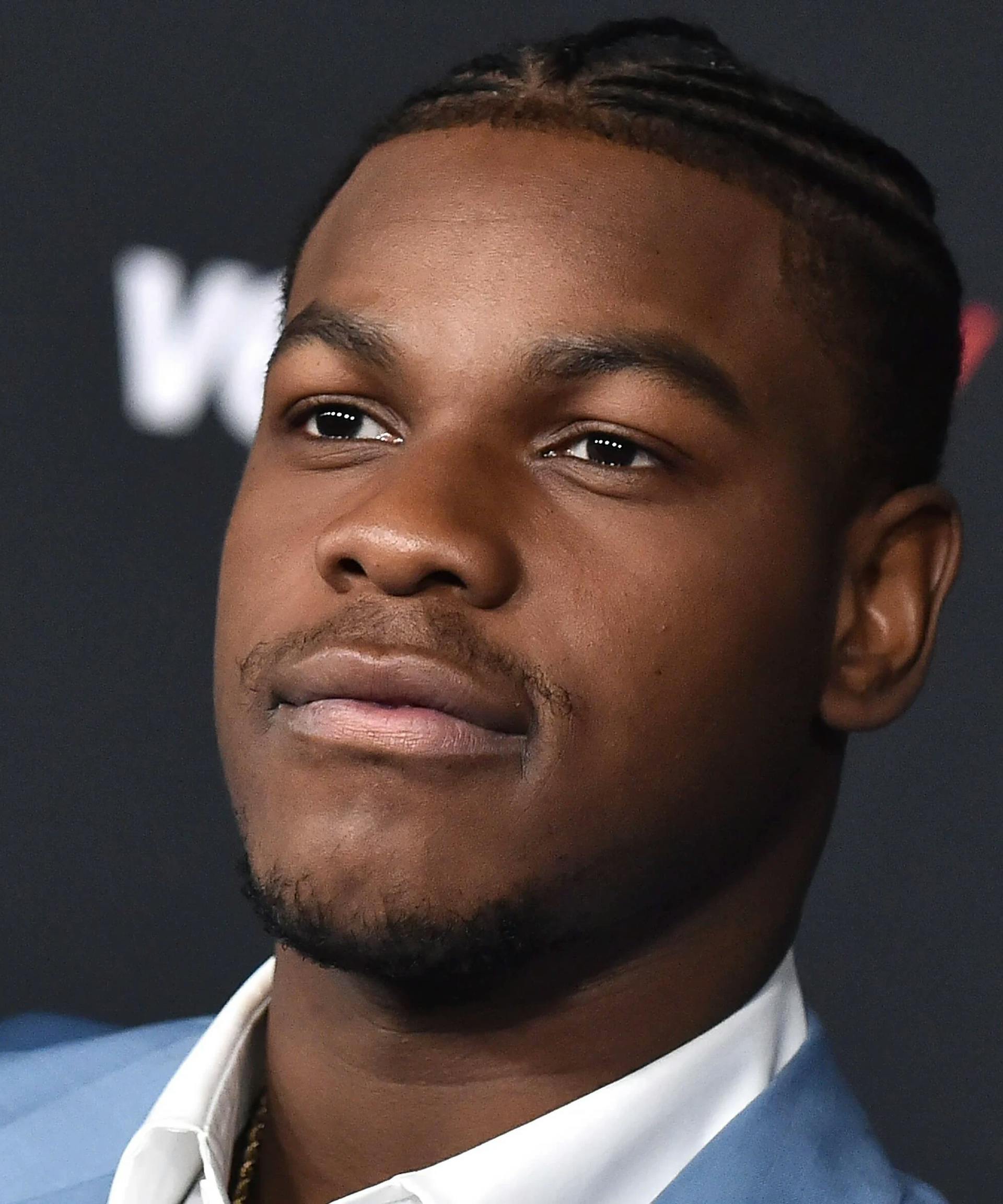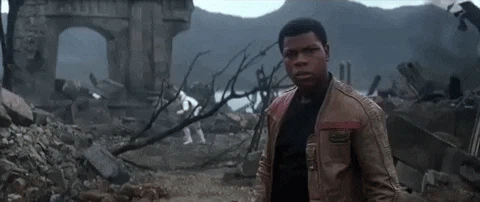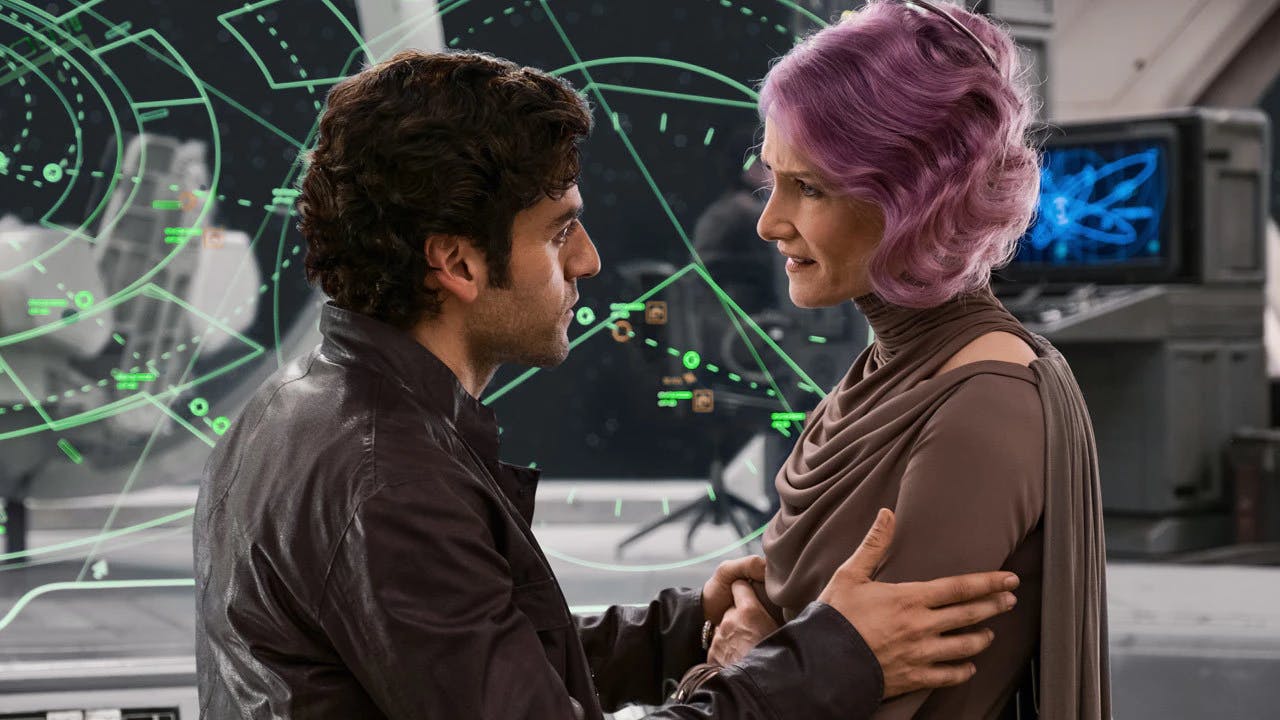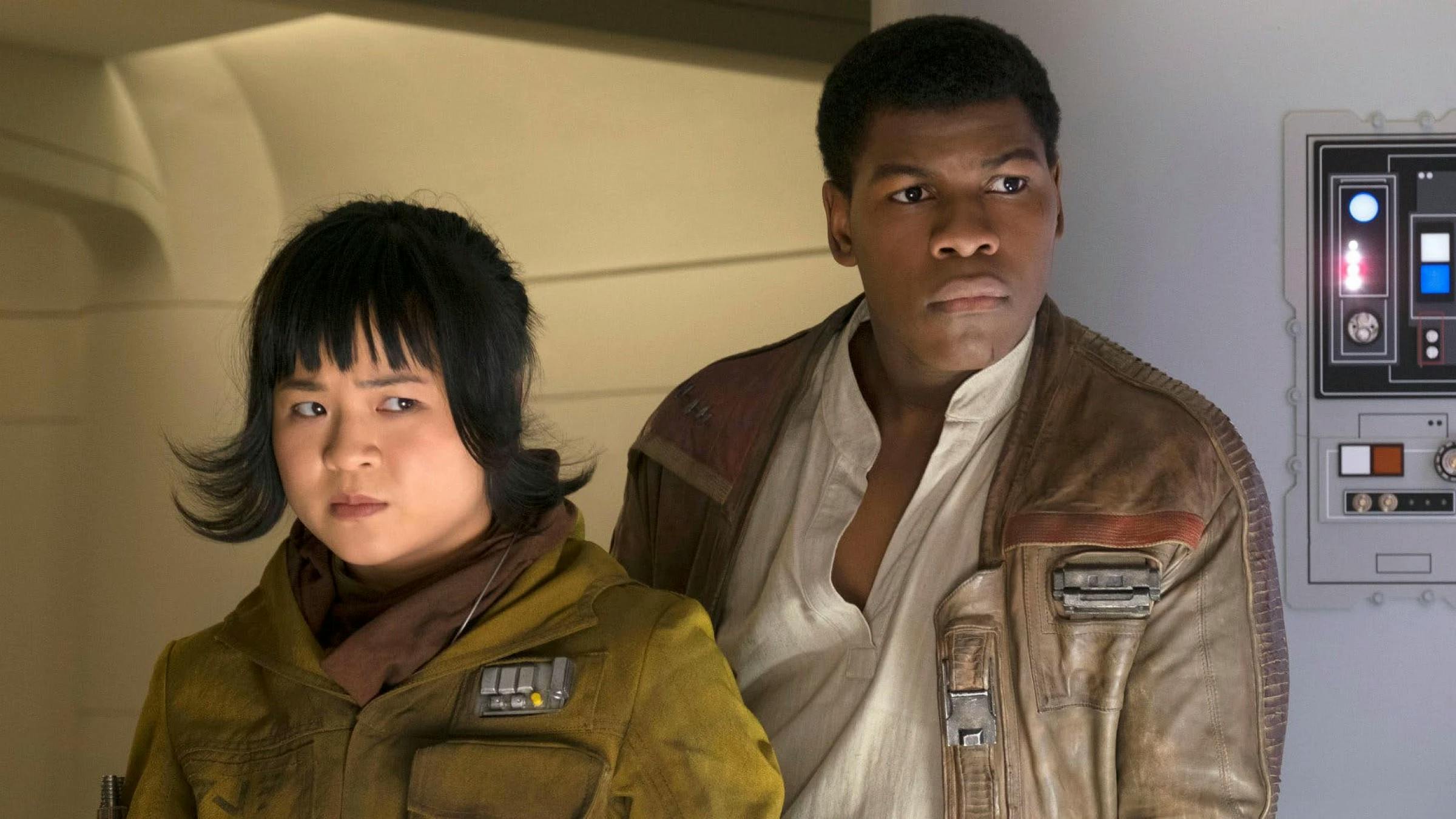John Boyega Wasn't A Victim Of Racism. He Was A Victim Of Disney's Misguided Attempt At Feminism
Yesterday, John Boyega made headlines after he revealed in an exclusive interview that he believes his Star Wars character was given a lackluster storyline because…he’s black.

Boyega is angry about how Disney misled him and the fandom in general, about his character Finn, a former storm trooper who escapes to join the Resistance: “I would say to Disney is do not bring out a black character, market them to be much more important in the franchise than they are, and then have them pushed to the side. It’s not good. I’ll say it straight up.” He believes the same thing happened to his co-star Oscar Isaac, an American actor of Guatemalan descent, who plays the Han Solo-reminiscent Poe Dameron.
I do believe that Boyega and Isaac’s characters were robbed of their plotlines and their glory. I believe the trilogy set them up to be the main trio of the series, and somewhere along the line, that disappeared. The question here is: Was it racism, as Boyega claims? Not quite. I’m sure he’s seen the second film, The Last Jedi, and that film makes it very clear why his character was effectively written out of the series. John Boyega believes he is a victim of racism at Disney. He’s not. He (and his character) are victims of Disney's feminism agenda. It’s an agenda that was willing to sacrifice the chance for a black Star Wars hero in favor of a series of bland “empowered women.”
Disney was willing to sacrifice a black Star Wars hero in favor of a series of bland “empowered women.”
Finn Was Set Up To Be a Major Hero in the Series… So What Happened?
It’s fair for Boyega to feel that his character was cheated. The first film clearly established a new hero trio: Rey, Finn, and Poe. It was set up to follow the very formulaic style of the previous two trilogies — two men and a woman who are the central characters of the film. The first major departure from the formula was making Rey, a woman, the central character of the trilogy. On its surface, this was probably a good choice for the series. It broke the formula just enough to be unique, but kept in the tradition of bad-ass Star Wars ladies who had come before.
Finn and Poe were clearly meant to be the other two members of the trio, although it was unclear who would play Rey’s love interest. In the originals, there’s a love triangle between Leia, Luke, and Han, which thankfully resolves long before Luke and Leia discover that they’re twins. It seems obvious that J.J. Abrams, who directed the first film, had planned to recreate a similar dynamic between Rey, Finn, and Poe.

Unfortunately, scheduling conflicts prevented Abrams from directing the second movie. Whatever happened between Abrams and Rian Johnson, the new director hired for the second film, must have been disastrous. The result was the movie that spelled disaster for the trilogy: The Last Jedi.
A Galaxy of Empowered Women
The Force Awakens may have been a bland and somewhat derivative rehash of a beloved series, but at least it was enjoyable. What happened with The Last Jedi, however, is a completely different story. I won’t go into the generally terrible story writing or the magical Force powers that are suddenly invented just for that film. The real underlying flaw in the film, of which the bad writing and the magic powers are just byproducts, is the sudden desire to make Star Wars a galaxy of empowered women.
Rian Johnson and the team at Disney clearly couldn’t resist the siren song of feminism when writing this film. While the Star Wars series has always had powerful female characters, this clearly wasn’t enough for Johnson. The film’s clear intention is to make all of the female characters strong and “empowered.” The best way to do this? Emasculate every male character, make their characters defunct and useless, and let the ladies rule the day.
Emasculate every male character and let the ladies rule the day.
Every time the male characters go to save the day, they’re either thwarted or undermined by one of the female characters. At the very beginning of the film, Poe saves the day with his quick thinking. Princess Leia rewards his bravery by demoting him for subordination. Later, when Leia is almost killed during another Star Destroyer attack, Poe is passed up as acting commander of the vessel (even though he is their head fighter pilot) in favor of the queen of all bureaucrats, Vice Admiral Holdo.

Apparently, Admiral Holdo’s brave plan to escape the First Order is to slowly outrun them and then abandon ship. She has Poe removed from the command deck when she decides his solution to their dilemma is too manly and aggressive (read: brave and effective). At this point, viewers are thinking to themselves, perhaps Disney did Poe dirty. Or better, they’re setting him up for a redemption scene at the end of the movie.
But Disney had no plans for any of the men to be allowed agency or heroism in this story. The next character’s manhood to hit the chopping block is Finn. He gets wrapped up with a completely unnecessary and frankly irritating character named Rose, who is a mechanic on the ship. The writers then sideline Finn’s character for a major part of the film by sending him off on a mission that isn’t going to work and is blatantly written into the plot to get Finn off the ship, effectively removing him from any position from which to play the hero.

On their bizarre and unnecessary mission, Finn is basically useless. Rose spends most of the time lecturing him on economic exploitation (words we never thought we’d hear in a series set thousands of years ago) and how “slavery is bad.” The social justice themes are very thinly veiled in this film and even less creatively integrated into the plot. Apparently, having an entire film about saving a child from slavery wasn’t enough of a statement for Johnson. Rose is therefore determined to save someone from the slavery all around her. However, instead of rescuing the human children who are slaves, Rose opts to ride into the night on a herd of creatures too bizarre even for Star Wars. What does Finn do this entire time? Well, nothing heroic or important.
The social justice themes are very thinly veiled in this film and even less creatively integrated into the plot.
The end of this laborious movie offers no redemption for our two supposed male heroes. Poe fails miserably to stop Holdo’s plan. Their ship is destroyed, what appears to be the majority of the Rebel Alliance is killed trying to escape, and they still have to fight the First Order once their meager force lands on the nearby planet. At this point, Finn and Rose have reunited with the rebels. Just in time for Finn to do absolutely nothing to help save the rebels from the First Order.
It’s not for lack of trying. In what seems to be his one moment of agency and courage in the film, Finn is ready to sacrifice himself to blow up the First Order’s cannon. But he can’t do that! Women have to save the day this time! Rose drives her ship into Finn’s, stopping him from performing his courageous act, and proving that bravery isn’t really the answer. Running away, hiding, and discussions will solve their epic conflict. Or at least, that’s what she and Holdo seem to think.
Star Wars Doesn’t Need Disney’s Feminism
Men and women in the Star Wars galaxy have never fought for dominance; they’re partners, comrades in the struggle for freedom from dark forces at work. Leia is not less strong because she’s in love with Han or because she has to be rescued (more than once) by Luke. In fact, her character is strong, vulnerable, feminine, brave, and noble. She’s not made weaker by her feminine traits, but strengthened by them. At the same time, her worth as a woman is not diminished by relying on the men around her for help.
She’s not made weaker by her feminine traits, but strengthened by them.
This isn’t the message being passed along by the new Star Wars trilogy. Apparently, women can only be strong as long as the men around them are weak and powerless. Although according to the movie, even when women are left in charge, we’re terrible at it. Rose stops Finn from saving the rebels from the cannon. Holdo destroys their entire force — but that’s ok, because she’s a woman, she’s not reckless and hot-headed like Poe, so her decisions are best.
Closing Thoughts
John Boyega’s character wasn’t a victim of Disney’s racism — he was a victim of Disney’s obsession with female empowerment. It isn’t good enough anymore to have strong women fight alongside the men. Strong men are a threat to today’s “empowered women.” Finn’s character, who many had hoped would become a Jedi in the series alongside Rey, was cast aside to feed a bigger monster: the never-ending hunger for more social justice.